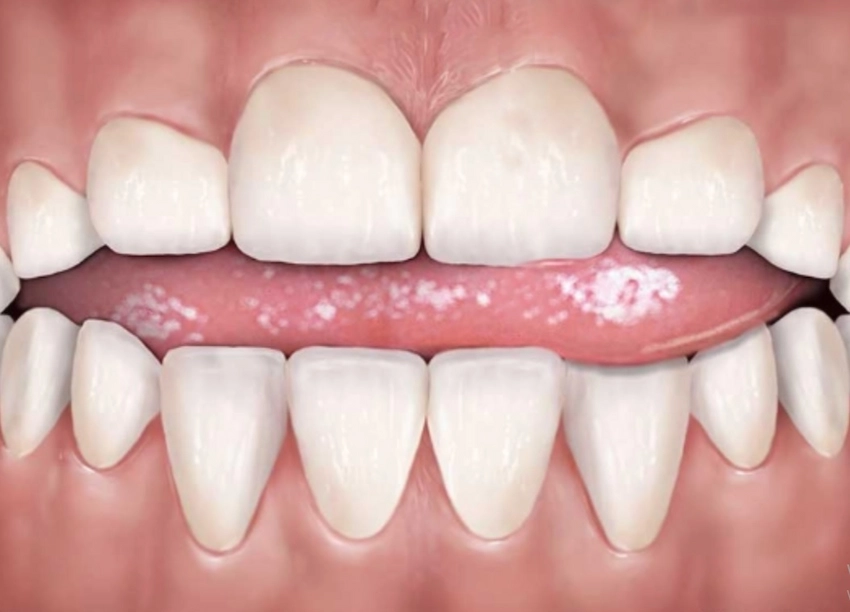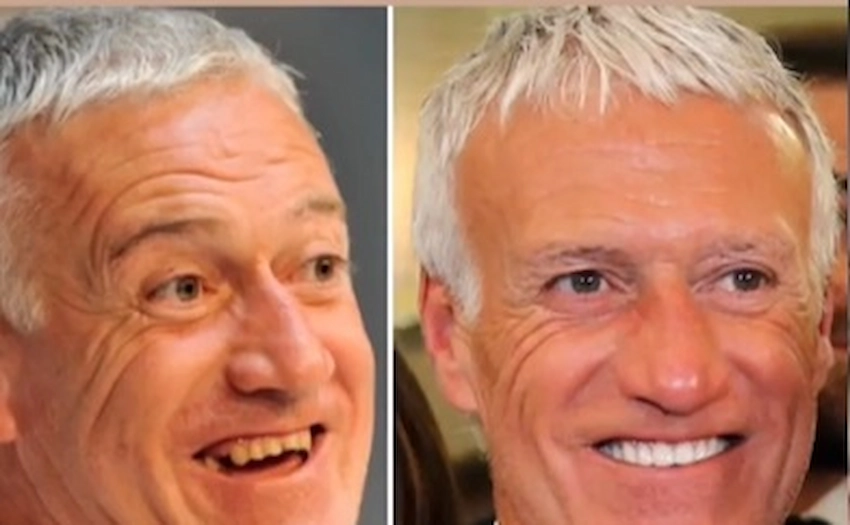🦷Constantly Pressing the Tongue on the Teeth: What are Outcomes?
One salient observation is when you are constantly pressing the tongue against the teeth, and if so, there could be a real problem. At the beginning, this activity might seem innocuous, but if it flares up, it can come with several dental and oral health consequences. Whether it is done consciously or unconsciously.
The strain from the tongue on the teeth may result in the sticking of the tongue, as well as functional and aesthetic disturbances after some years. The whole understanding of the situation is key to protecting your oral health. Why this happens, the potential damages, and the habit modification are very important things to study for an ordinary person.
What Causes Constantly Pressing the Tongue on the Teeth?
There are various reasons, probably the individual is constantly tongue pressing against his teeth. Usually, this is a habit which a person does more or less consciously for comfort or to concentrate better. For children, it is also a possibility that, from time to time, this is a learned or stress-related behavior. Kids’ tongue can act subconsciously in their mouths, and they push it on their teeth when they are anxious or they do something that needs concentration.
However, the pattern of pressing the tongue onto the teeth can also be linked with the arrhythmia of the mac procedures or the wrong occlusion of the dentition. If the malocclusion of the teeth is the problem, the situation and the tongue might create the new occlusion. This happens mostly with kids whose teeth are in the stages of developing, and the fitting of the teeth may be very different at that stage.
At times, there could be issues like speech impediments or even swallowing impediments which compel the younger generation to press their tongue against their teeth when they are trying to speak or swallow correctly. These difficulties could form into a habit, and for the children, it could be a lasting issue if not properly handled.
The Consequences of Constant Tongue Pressure on the Teeth

It might look like an innocent activity, but repeatedly pressing the tongue on the teeth can have many bad effects on oral health. With time, the pressure can cause dental misalignment, a condition in which the teeth shift or rotate. The consequence might be crowded or unspaced teeth that were not present in the person before.
In the case of children, whose teeth are still in the process of growth, tongue pressure can not only cause malocclusion but even result in a different growth pattern of the jaws.
The constant force of teeth on the gums could also result in gum trauma or recession. As a consequence of pressing the gums and teeth together continually, the gums could retract and get inflamed, thus exposing the tooth roots and leading to the teeth becoming sensitive. This will open the door for tooth decay especially if the roots that are exposed to the bacteria are not adequately covered.
Depending on the manner and frequency of pressing the tongue against the teeth may even be detrimental to the person’s speech. It is likely to occur when the tongue is not correctly situated thus hindering the movement of the words and finally making the person produce sounds affected by a lisp and in the worst and the most. The problem may linger if the speaker doesn’t seek help promptly.
What You Can Do to Break the Habit?
In case you or your child are constantly pressing the tongue against the teeth and thereby indulging the habit, the first action will be becoming conscious of the situation. Many people are not aware of the unconscious act of tongue pressing and thus realizing the behavior is a necessity that cannot be ignored.
In the case of children, constant efforts, repetitive reminders, and making them aware of their tongue’s position and the need to relax their tongue may be some of the attempts moms and dads can make.Depending on the cause of the habit, orthodontic procedures like braces or retainers may be required for treatment.
These appliances are used to align the teeth properly and the jaw, thus making it less likely for the tongue to be in constant contact with the teeth. A professional dentist can verify the appropriateness of these treatments and give you the required information about the same. In case of children, especially those with speech problems or are swallowing due to the problem, a speech therapist is the one to visit for consultation.
They will teach the children the ways to keep the tongue in its place, which will result in the demand for the tongue to be less pressing upon the teeth.It is also true that teaching your child (or yourself) to control these feelings by using relaxation techniques or other stress-reducing activities can also be a great way to eliminate the habit of tongue-thrusting.
When Should You Seek Professional Help?

In case you keep doing the method of moving your tongue to the teeth even after you have tried all the self-correction techniques, then seeking advice from a professional is a must. A pediatric dentist or orthodontist will check whether the tongue pressure is the cause or makes dental misalignment worse. In addition, experts can also suggest treatments such as a night guard, new braces, or any other solutions to the patient as a way of preventing possible further damage.
Furthermore, if speech defects or swallowing problems are the major cause of the problem, contacting a speech therapist is a crucial step. A specialist can help your kid with the correct articulation of the tongue during speech and swallowing, thus getting rid of the necessity of the tongue pressing on the teeth.
FAQs About Pressing the Tongue on the Teeth
This behavior can be caused by a variety of factors, including habit, speech issues, stress, or misalignment of teeth. It’s often a subconscious action that may need professional evaluation to correct.
Yes, if this behavior continues over time, it can lead to dental misalignment, especially in children whose teeth are still developing. The constant pressure may shift the teeth or affect the alignment of the jaw.
Awareness is the first step. For children, working with a speech therapist or orthodontist can help. In some cases, dental treatments like braces can help reduce the need for the tongue to press against the teeth.
While it may not cause immediate harm, over time, this habit can contribute to gum irritation, tooth wear, misalignment, and speech issues. It’s important to address it early to prevent long-term damage.
Yes, pressing the tongue on the teeth can lead to tooth wear, gum irritation, and even tooth sensitivity over time. It can also contribute to jaw pain and headaches due to the continuous pressure on the jaw muscles and teeth.




